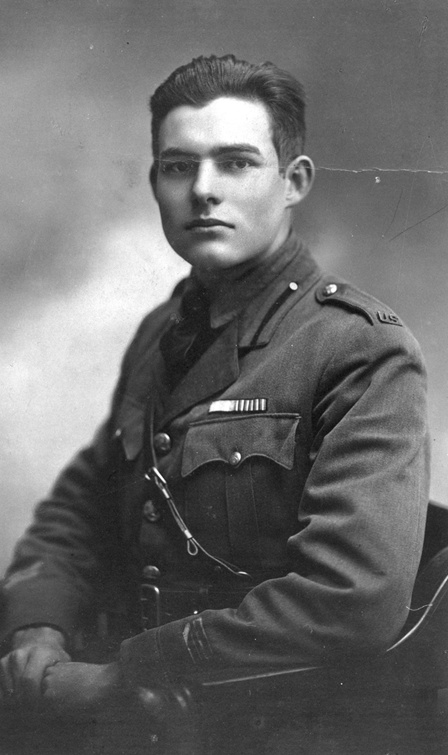The Italian Catholic God Does Not Sit Well with American Critics
DOI:
https://doi.org/10.13133/2532-1994.14805Abstract
I promessi sposiholds a central place in Italian literature as its first great historical novel. It is hailed for having contributed significantly to the systematization of the Italian language in the prose medium. Outside of Italy, however, and particularly in America, I promessi sposiis little read. In general, it does not command the same respect as other comparable big nineteenth-century novels nor has it solicited much commentary in the English-speaking world. It is not featured, for example, in the principal American anthologies dealing with the genre. This paper examines why I promessi sposireceives so little attention in the US. What is it about the novel that does not suit American tastes? This paper makes the case thatI promessi sposi’sreligious thematic hinders its popularity. I begin by considering the role religion plays in American literary studies as a scholarly topic of inquiry. I then discuss the religious dimensions of I promessi sposi. Finally, I will investigate how the Catholic message of Manzoni’s novel may have affected its reception both at home and in the US. I will also touch upon the role of anti-Catholic and anti-Italian nativism still prevalent in American society.
References
Asor Rosa, Alberto. Sintesi della storia della letteratura italiana. Firenze: La Nuova Italia, 1972.
Barricelli, Gian Piero. Alessandro Manzoni. Boston: Twayne, 1976.
Bonghi, Ruggiero. Les Stresiane: Dialoghi di Alessandro Manzoni – Antonio Rosmimi. Brescia: Camunia, 1985.
Cadegan, Una M. All Good Books Are Catholic Books: Print Culture, Censorship, and Modernity in Twentieth-Century America. Ithaca, NY: Cornell UP, 2013.
Caserta, Ernesto G. “Manzoni’s Aesthetic Theory.” Comparative Literature Studies, 19 (1973): 229-51.
̶ ̶ ̶ ̶ . Manzoni’s Christian Realism. Firenze: Leo S. Olschki, 1977.
Codignola, Ernesto. Carteggi di giansenisti liguri. Firenze: Le Monnier, 1941.
Colquhoun, Archibald. Manzoni and his Times. New York: E.P. Dutton, 1954.
Cottignoli, Alfredo. Manzoni: Guida ai Promessi Sposi. Roma: Carocci, 2002.
Croce, Benedetto. Perché non possiamo non dirci cristiani. Bari: Laterza, 1943.
De Sanctis, Francesco. Manzoni. Torino: Einaudi, 1955.
Gentile, Giovanni. Dante e Manzoni. Firenze: Vallecchi, 1923.
̶ ̶ ̶ ̶ . Manzoni e Leopardi. Milano: Treves, 1928.
̶ ̶ ̶ ̶ . La filosofia dell’arte. Firenze: Sansone, 1958.
Giordano, Alberto. Manzoni: la vita, il pensiero e i texti esemplari. Milano: Accademia, 1973.
Greeley, Andrew M. Ethnicity, Denomination and Inequality. Beverly Hills, CA: Sage, 1976.
̶ ̶ ̶ . An Ugly Little Secret: Anti-Catholicism in North America. Kansas City: Sheed Andrews and McMeel, 1977.
Leetham, Claude. Rosmini: Priest and Philosopher. New York: New City Press, 1982.
Malusa, Luciano and Paolo De Lucia, eds. Carteggio Manzoni-Rosmini. Milano: Centro Nazionale Studi Manzoniani, 2003.
Manzoni, Alessandro. I promessi sposi. 2 vols. Milano: Fabbri, 1969.
̶ ̶ ̶ . Scritti linguistici. Napoli: Liguori, 1969.
̶ ̶ ̶ . The Betrothed. Translated by Bruce Penman. London: Penguin, 1972.
̶ ̶ ̶ . Del Romanzo storico. Opere di Alessandro Manzoni. Edited by Lanfranco Caretti. Milano: Mursia, 1973.
̶ ̶ ̶ . Osservazioni sulla morale cattolica – Storia della Colonna Infame. Milano: Garzanti, 1985.
̶ ̶ ̶ ̶ . Dell’Invenzione. Edited by Piero Prini. Brescia: Morcelliana, 1986.
Marsden, George M. The Outrageous Idea of Christian Scholarship. New York: OUP, 1977.
̶ ̶ ̶ ̶ . and Bradley Longfield, eds. The Secularization of the Academy. New York: OUP, 1992.
̶ ̶ ̶ ̶ . The Soul of the American University: From Protestant Establishment to Established Nonbelief. New York: OUP, 1994.
Massa, Mark S. Anti-Catholicism in America: The Last Acceptable Prejudice. New York: Crossroad, 2003.
Matteo, Sante and Larry H Peer. The Reasonable Romantic: Essays on Alessandro Manzoni. New York: Peter Lang, 1986.
Momigliano, Attilio. Dante, Manzoni, Verga. Messina: G. D’Anna, 1965.
Montano. Rocco. “I promessi sposi: Reasons Why It is Scarcely Known in America.” Umanesimo, 1 (1966-7): 45-58.
̶ ̶ ̶ ̶ . “Manzoni Today.” Italian Quarterly, 67 (1973): 24-54.
̶ ̶ ̶ ̶ . Comprendere Manzoni. Napoli: G.B.Vico, 1975.
̶ ̶ ̶ ̶ . Cinque saggi – Dante-Ariosto-Manzoni-Pascali- D’Annunzio. Castrovillari: Il Coscile, 2004.
Moravia, Alberto. “Alessandro Manzoni o l’ipotesi di un realismo cattolico.” In L’Uomo come fine e altri saggi. Milano: Bompiani, 1964.
Nardi, Piero. I promesssi sposi da Alessandro Manzoni. Milano: Mondadori, 1953.
Oliva, Gianni. L’antimanzonismo. Milano: Mondadori, 2008.
Omodeo, Adolfo. L’Età del Risorgimento italiano. Napoli: Edizioni scientifiche italiane, 1946.
Peer, Larry H. “The Reasonable Romantic: Moving Manzoni into the American Spectrum.” In Matteo and Peer 1986, 21-32.
Petronio, Giuseppe. Formazione e storia della lirica manzoniana. Firenze: Sansoni, 1947.
Rosmini, Antonio. Epistolario filosofico. Edited by Giulio Bonafede. Trapani: Celebes, 1968.
Ruffini, Francesco. La Vita religiosa di Alessandro Manzoni. Bari: Laterza, 1931.
̶ ̶ ̶ ̶ . Studi sul giansenismo. Firenze: La Nuova Italia, 1943.
Russo, Luigi. I personaggi dei promessi sposi. Bari: Laterza, 1946.
Sapegno, Natalino. Compendio della storia della letteratura italiana. 3 vols. Firenze: La Nuova Italia, 1966.
Spanzi, Aldo. Anticritica dei Promessi Sposi. Milano: Egea, 1995.
Tracy, David. The Analogical Imagination: Christian Theology and the Culture of Pluralism. New York: Crossroad, 1981.
Triolo, Franco. “Manzoni and Providence.” In Matteo and Peer 1986, 245-58.
Ulivi, Ferruccio. Manzoni, Storia e Provvidenza. Roma: Bonacci, 1974.
Varese, Claudio. L'originale e il ritratto: Manzoni secondo Manzoni. Firenze: La Nuova Italia, 1975.
Viti, Gorizio. Conoscere I promessi sposi. Firenze: Le Monnier, 1978.
Wall, Bernard. Alessandro Manzoni. New Haven: Yale UP, 1954.
Zama, Rita. “L’antimanzonismo linguistico del “Manzoniano Rosmini.” In Oliva 2008, 49-78.
Downloads
How to Cite
Issue
Section
License

Except where otherwise noted, the content of this site is licensed under a Creative Commons Attribution 3.0 Unported License.


